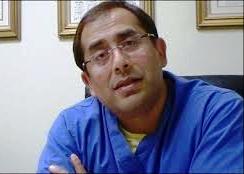The real face of Pakistan
The Talent Of Pakistan
Pakistan, a land that has become synonymous with ‘versatile’ crime, crude jokes about Talibanisation in the West and a euphemism for all that is dark and grey. There are always two sides to a coin; the first side is seldom the accurate or the complete picture.
There are plenty of problems in this country, yet somehow I always get the impression that the media outlets in Pakistan do tend to overemphasise the negative aspects over the positives. I am sure this statement would fetch many comments that can be classified as nefarious by any linguistic measure. But, please, do try to understand the point of all this.
The point is that the country is in transition- it is a volatile transition wherein we all must play a role to change the social standards and norms of Pakistan. In this blog post, I will go over a list of people of Pakistani descent, from diverse backgrounds, who are working diligently to promote a pro-Pakistan image abroad.
Their efforts combined with individual efforts from all of us would ultimately determine both the pace and the quality of the social change that we all so desire to manifest in Pakistan. I draw my inspiration from these people, I hope you do too.

1. Dr Umar Saif
An Associate Professor of Science and Engineering at the Lahore University of Management Science (LUMS). Massachusetts Institute of Technology (MIT) has named him one of the top 35 innovators of the world (TR35). The list is compiled by MIT annually.

2. Naila Alam and Yasmeen Durrani
These two Pakistani women have been honoured by the White House for their humanitarian work. The Honour of Hope Award recipients manage a philanthropic venture called ‘Express Care’ which focuses on providing daily essentials, such as food and medicine, to low income individuals. The organisation also helps with employment.

3. Dr Arjumand Hashmi
A Pakistani-born mayor of a town called Paris, in Texas, USA.
What’s his claim to fame?
He has successfully created a community and inculcated a pro-Pakistani image in the Southern state that has been a hotbed of anti-Pakistan sentiments, especially during the tenure of President George W Bush Jr. He is an accomplished cardiologist and continues to run his practice as well.

4. Ali Moeen Nawazish
He is most notably famous for setting a record of acing 23 subjects in the Cambridge O-Level examinations. He is also the recipient of Pride of Performance award and his contributions to the field of education are immense. He continues to work tirelessly and has founded an organisation called ‘StepUP Pakistan’, where they aim to train teachers and improve education in the impoverished areas of the country; a noble effort by an equally noble youngster.
He truly deserves a standing ovation.

5. Mehak Gul
Gul started playing chess at the early age of six. She is now 13-year-old and is creating a pro-Pakistan image by being an internationally acclaimed chess player.

6. Dr Naweed I Syed
Dr Syed is a globally acclaimed scientist of Pakistani origin and head of the Department of Cell Biology and Anatomy at the University of Calgary’s Hotchkiss Brain Institute in Canada. He is the first scientist to ‘connect brain cells to a silicon chip’. This is indeed a great honour for Pakistan.
Connecting brain cells to electronic chips opens up the potential to take artificial intelligence computing to the next stage and Dr Syed plays a leading role in this quest.
This is not the end of the trail. There are countless other Pakistanis working either as individuals or in teams that are bringing a positive image of Pakistan into the lime light and are laying the framework for positive social chance.
Pakistani civil society continues to unite during events of mass gravity. For example, recall how the civil society formed human chains to protest against the church bombings in Peshawar.
The civil society is abhorred at the gruesome and vile acts of terrorism that have become nomenclature for anything Pakistani globally. The same civil society also manages to come together and unite Pakistanis irrespective of their cultural or religious affiliation. When we label a society as a failure, it is not only the economic variables and the governance infrastructure that must be looked at. We must also inspect the level of empathy that the society, as a whole, shows for their fellow citizens.
Time and again, Pakistanis have proven their mettle by staying united when faced with disasters of mass calamity. The earthquakes and the 2010 Pakistan floods are another reminder of how the nation came together despite all odds.
Social changes such as those that Pakistan needs are never delivered overnight. They are a part of an evolutionary process that has multiple triggers with seemingly divergent paths leading to destination change. These Pakistanis from various shades of life and professions are keen for Pakistan to change for the better.
We must all follow suit.
Why does Pakistan continue to lag behind in most fields?
Why is it there an everlasting wave of terrorism that seems to grow stronger and more vile and viral?
Why is there perpetual lapse between what we say and what we do?
Why is there an utter disregard for ethics and moral in this society?
Why have standards from education to entertainment degraded?
The answers to all these questions are complex. However, steps are being taken in individual capacities by many and their efforts must be acknowledged and acclaimed.
Too often we assume that the rut that we are stuck in is a vicious cycle. This thought is a natural consequence for not being presented the brighter side of the picture. Once we start to appreciate the positives, along with acknowledging the negatives, we should be able to understand that the vicious cycle of misery, poverty, injustice and lawlessness has indeed been broken. It is a slow road to success and we are making a steady move towards destination progress.
The vehement tides of fate may turn around for the better. All Pakistan demands is commitment, dedication and sincere motivation, which people like these and many others like them have exhibited.
This New Year I hope we learn to smile at the positives, ponder over the negatives and learn from those making a difference.



